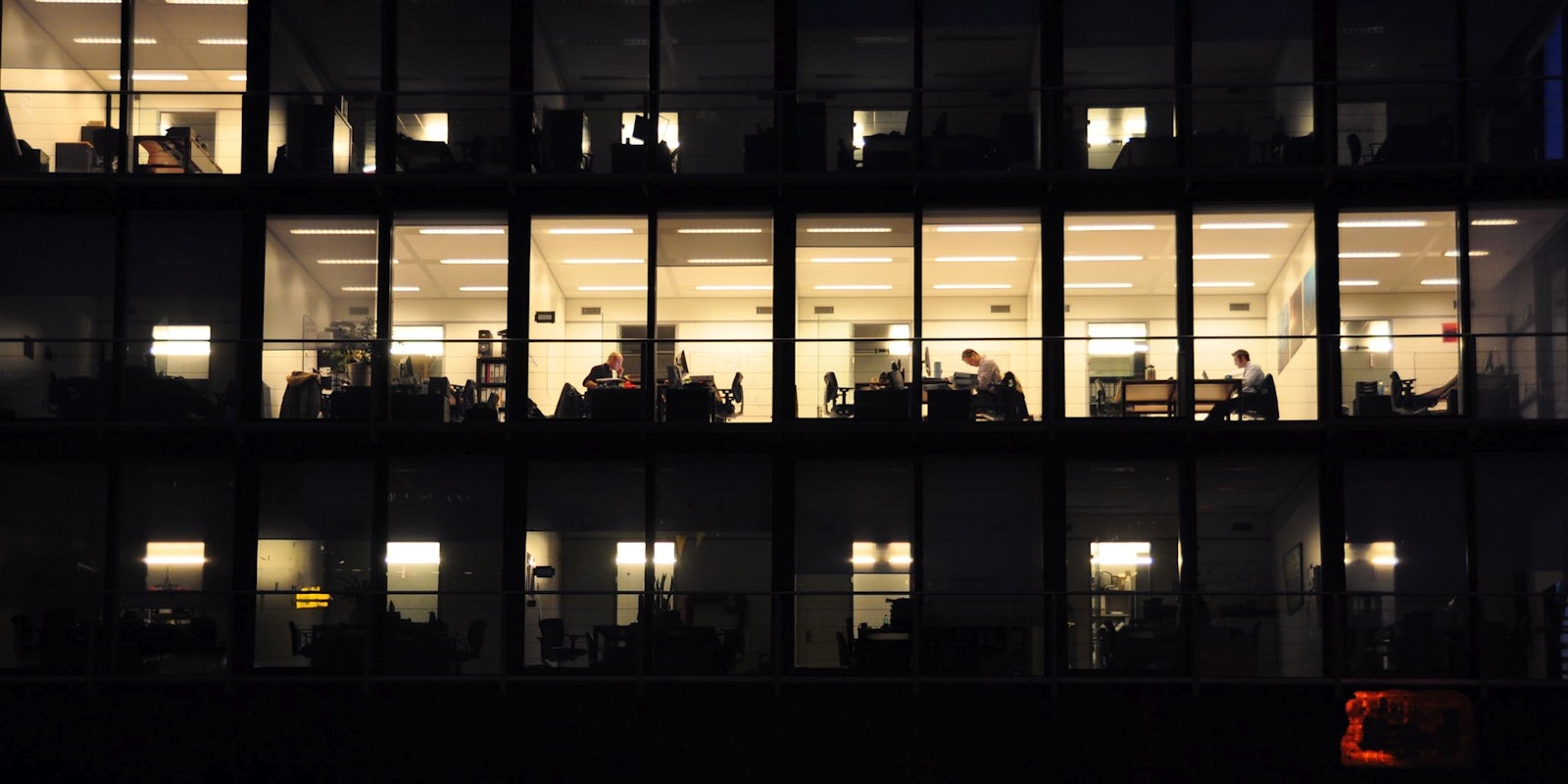Over the next year, Americans will hear a vigorous political debate about jobs. The more interesting questions, however, may be the ones just emerging in the new economy: What will jobs even look like in a century of breathtaking technological change? More than any other people, Americans live to work—but what is the future of that work in this new, digital, and on-demand world? And how will we reconcile a social contract designed for yesterday’s workforce with the needs of workers and businesses in the economy of today and tomorrow?
Twenty-first century innovation is transforming the American workplace far faster than a 20th-century government and a 1930s social contract can keep pace. In the past, the American worker planned his or her life around a full-time, long-term relationship with a single employer. Our economy has been shifting away from that model for decades—but today that shift is accelerating before our eyes. An entire industry of on-demand services and shared goods through digital platforms has sprung up, producing a host of household names—Uber, Lyft, Handy, Airbnb—that were unknown when this decade began.
This “on-demand economy” is creating countless jobs, attracting unprecedented valuations, and raising novel questions for entrepreneurs and policymakers alike. What does unemployment insurance—designed to protect workers against layoffs and downturns—mean for an Uber or Lyft driver who chooses when and when not to work? How will Americans, long accustomed to a suite of benefits and workplace protections through their employers, build a safety net while working for multiple on-demand employers simultaneously and over time?
Even in the midst of an economic revolution — perhaps especially in the midst of such a revolution — it is essential to recognize that some needs and rights of workers have not changed.
Even in the midst of an economic revolution—perhaps especially in the midst of such a revolution—it is essential to recognize that some needs and rights of workers have not changed. People still require access to health care and retirement security, and workers need to be protected from exploitation. We should look for creative ways to increase the economic security of on-demand workers without undermining the flexibility of the on-demand economy.
The two of us believe in the promise of innovation, the power of markets, and the opportunities of entrepreneurship, and we want to make sure hard-working Americans come out ahead in the bargain. That is why we are joining forces in The Aspen Institute’s new year-long initiative on the Future of Work. In our home states of Virginia and Indiana, we have seen the economic potential of new technology to create jobs, revive manufacturing, and revitalize impoverished and rural areas. We come from different backgrounds, but share a commitment to forward thinking, and both recognize the need to re-envision the social contract in the midst of sweeping change.
First, government must catch up with the times. Policymakers don’t even know how many people work in the on-demand economy—the last government survey of the contingent workforce took place a decade ago. This initiative will survey participants in the on-demand economy to measure economic impact and attitudes among workers and consumers. Making this new economy work better for more people starts with credible data.
Second, we must seize the opportunities and confront the challenges of the on-demand economy—and of the contingent workforce more generally. This initiative will examine several innovative approaches such as hour banks for pooled benefits and online benefits marketplaces that follow workers wherever they may work.
To ensure a prosperous future for themselves and their workers, business leaders should remember an old-fashioned lesson: take the long view.
Finally, a new social contract for a changing workplace also depends on employers making longer-term investments in their workforce. Currently, our system incentivizes spending on plant and equipment rather than promoting investments that strengthen a company’s workforce. This initiative will explore a range of potential measures and incentives for employers to invest in pay, training, and benefits, to provide additional economic security for workers while reducing employer costs for recruiting and retaining a quality workforce. To ensure a prosperous future for themselves and their workers, business leaders should remember an old-fashioned lesson: take the long view.
Thankfully, on these issues, battle lines have yet to harden and shared progress is still possible. Last month, a remarkable coalition of leaders from industry, labor, and policy agreed on a set of principles for a 21st-century safety net of portable worker benefits. Washington knows too little about the on-demand economy, and even less about collaboration. The future of work in America, like the future of governing, will depend on both.
Mark Warner is a U.S. Senator and former Governor of Virginia. Mitch Daniels is President of Purdue University and former Governor of Indiana. They are honorary co-chairs of The Aspen Institute Initiative on the Future of Work.
A version of this story originally appeared on Medium and has been reprinted with permission.
Image via Michiel2005 / Flickr (CC BY 2.0)


